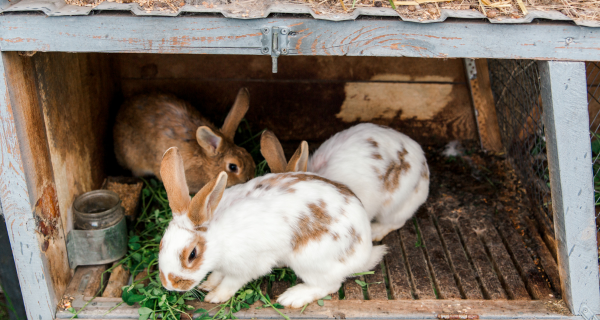

Summer is the time of year when people are thinking of holidays and the beach and having fun. For rabbit and guinea pig breeders, however, it is the time of year that we dread most of all.

You can’t even think of taking a break at this time of year, especially when, as it has been this year, the heat is relentless. It is also the time of year we get the heart-broken calls from pet owners: they left their pet in the shade, with water, yet they had passed while their family was away.
There are some important things to remember about small animals: They do not tolerate the heat well, and can die in a half an hour of it. Any temperature consistently over 24 degrees Celsius is lethal to guinea pigs. And rabbits originally came from cold climates. These temperatures we are seeing at the moment are as difficult for them to take as it is us.
Whilst its really unfeasible to have an air conditioner for your animals (although you could always share yours if have one…), there are way of helping them cope through the hot weather.
Quick List of things to Prepare Your Small Pet for the Summer:
- Cool place for your rabbit or guinea pig that will not have direct sun during the day
- A fan for the cage if possible
- A damp towel for the top of the run, or to use over a fan
- Regular cool water
- Frozen water bottles to cool the ambient temperature
- A bath or floor tile for a cool laying surface
- Pieces of frozen fruits or ice cubes of juice to hydrate and cool such as banana, orange and strawberry
- AND an accurate thermometer to check the temperatures outside. Too hot for us is lethal for our animals.
- Heat Stroke Emergency Kit
- Damp towel
- Basin to fill with tepid water for dippling your animal into
- A fan for cooling the animal wrapped in the towel
- Gastrolyte or Nutrigel to replace electrolytes
- Fluids to rehydrate
- And your vet’s number nearby.
Water: We know it’s important to keep our fluids up in the hot days. It is just as important for animals to keep up their fluids. A full bowl of cool water is essential. Let’s face it: you wouldn’t drink warm or hot water on a really hot day and water does heat up during the day. Changing the water when it heats up, sometimes is all it takes to keep your animal safe. Large heavy ceramic bowls in shade keep the water cooler than a bottle on the outside of the cage. They can lay in a bowl of water to cool off… or lay their ears in it, is they are lop eared rabbits. Rabbits maintain their temperature through their ears – and appreciate some cool water on their ears when it is very hot. If you are out for the day, consider the following: two bowls – one with cold water, and with ice to melt. Frozen bottles of water or fruit juices for the side of the cage. Always keep some bottles of water in the freezer during the hot weather. You can slip one into the pen with them and they will sit near or over it! You like iceblocks, so do small animals… frozen strawberries and other fruit, including bananas. They are all special treats to them.

Cooling Off:
Placing your animals in a well-shaded area is important, but the ambient heat can still kill. One friend told me that he would insulate his bunnies’ hutch with a foam box or two from the grocers. Over which he would drape a towel. The humble towel put over the top of a run which has been well dampened, will cool off that run. It has the advantage of you being able to hose it down or wet it through the day whenever you can. However, make sure there is circulation of air through the sides also. Shade clothes are good for people and animals in the backyard as well.
Terracotta tiles, or even old bathroom tiles, provide a cool place for the animals to stretch out. Just be sure you check them that they too haven’t heated up.
We’ve invested in some cheap fans for our runs. These are special battery operated ones that hook onto the wire and watching a rabbit with its nose to the wind like a flying ace is definitely a Kodak moment. However, an electric fan with a wet tea towel draped over it is a good for inside or buns on verandahs, not very practical out in the backyard.

Feeding: During Summer, for the most part, we don’t feel like eating – animals either. They prefer to be fed early in the morning and late in the evening when the sun is setting. Adapt your feeding pattern accordingly, peppering the day with cool treats from your fridge. Just remember that guinea pigs, especially, need to eat each 24 hours or the bacteria in their stomach will start to die off and they will not be able to digest their food.
Heat Exhaustion: What are the signs of distress caused by heat?
- rapid, laboured breathing with dampness about the nose
- lethargy, sometimes rocking motions
- dribbling from the mouth
When you get home and find your animals distressed, there are a few things you can do immediately. It may save their lives. Dunk in tepid water (not cold – you don’t want them to go into shock!), wrap in damp towel, and take them to the vet for treatment. They could very well be dehydrated. If they start recovering, give Gastrulated (from chemist) or Nitrite (Nutripet) from the vet or pet shop.
When you have to leave your animals on a hot day, a little preparation will help both you and the animals survive the heat.


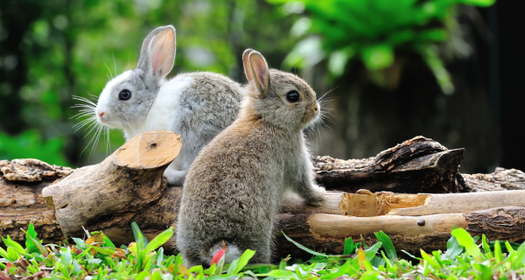
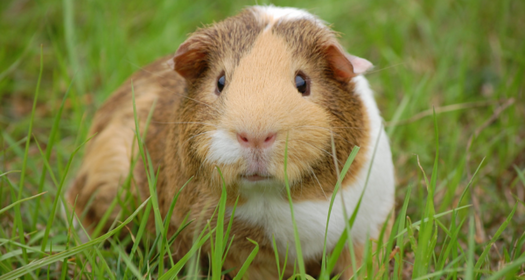
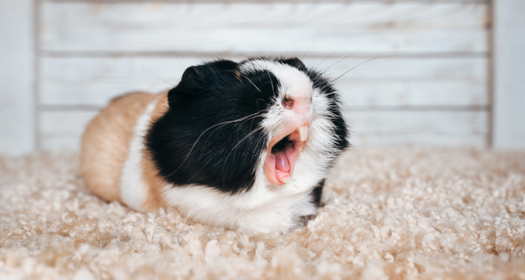
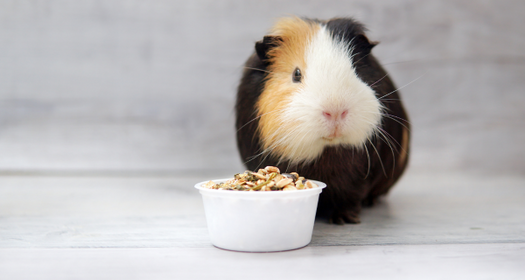
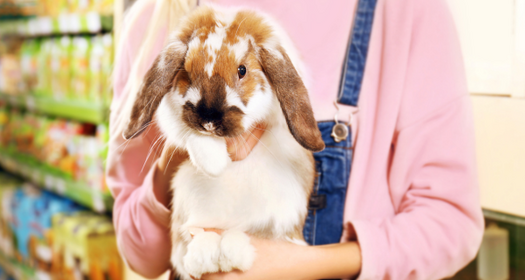




Leave Comment Below